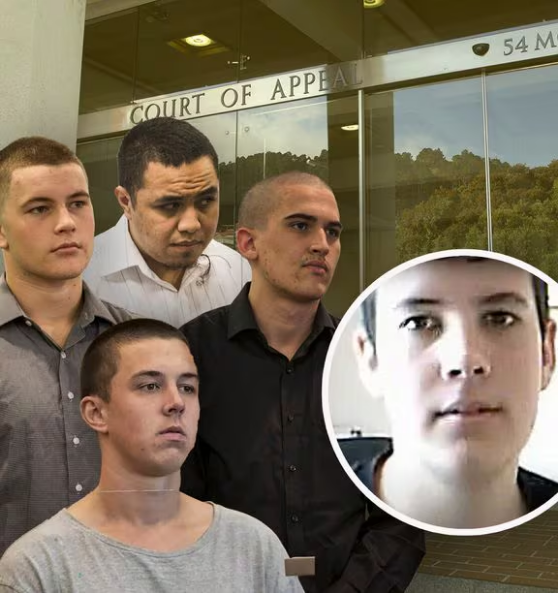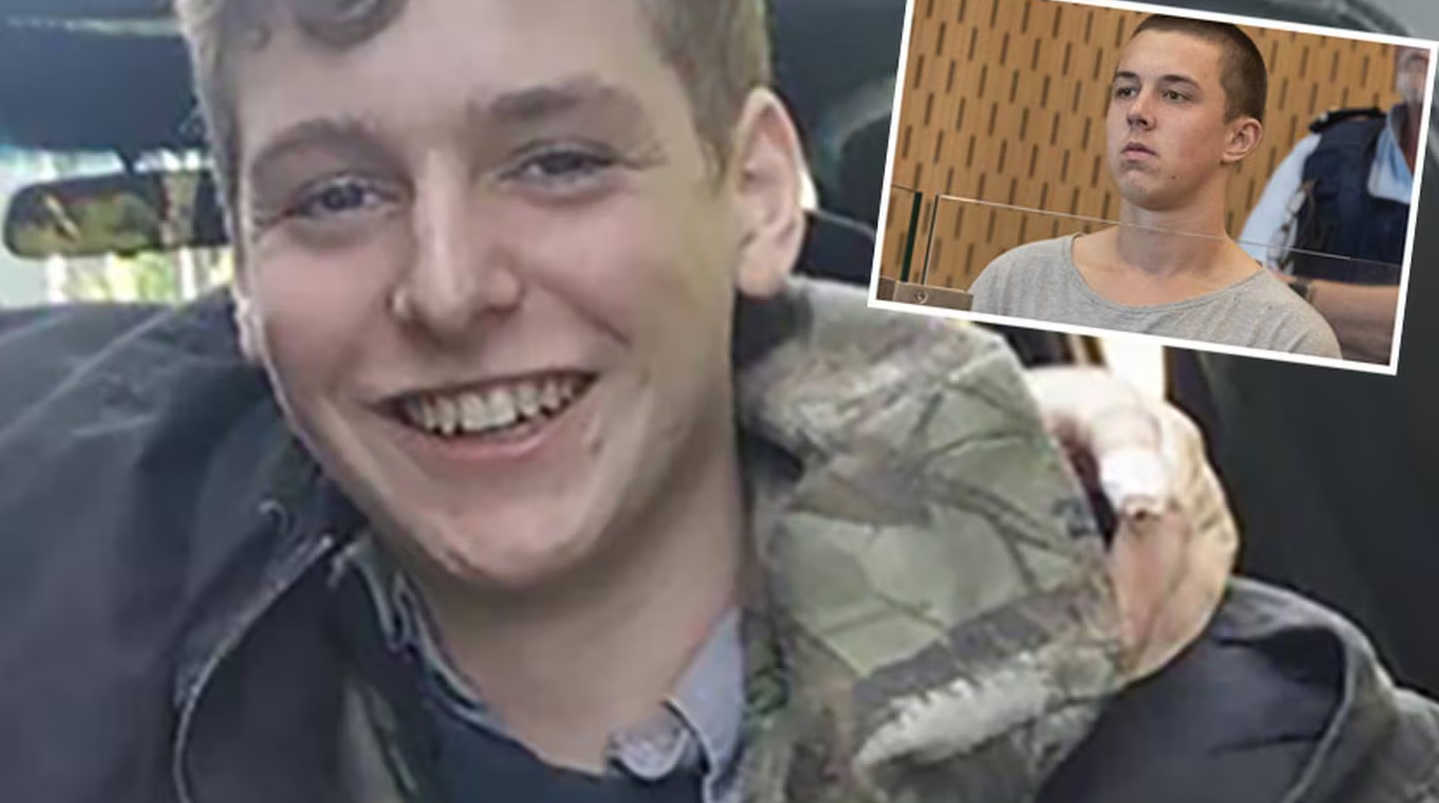

One, who is already out on parole, said he wanted a finite sentence because he currently lives with the fear of being recalled to prison. Two of the men said they took a chance on appeal because they had "nothing to lose".
Another said he was naïve and didn’t understand the legal process at the time he was sentenced and one just wanted an end date to work toward that would be the end of his time in prison.
But four of the five men have now failed in an attempt to appeal with the judges hearing their applications saying there was a misunderstanding that a precedent-setting case last year meant youth alone was enough to negate the presumption of life imprisonment for murder.
Only one of the men, Joel Lo who was 17 when he helped murder Tamati Tupe in Auckland in September 2012, has been granted leave to appeal his life sentence out of time.

• Hermanus Theodorus Kriel who was 14 in November 2008 when he knocked out and strangled 15-year-old Liberty Templeman, leaving her to drown in a stream;
• Leonard Gus Nattrass-Bergquist and Beauden Daniel Goerge Wallace-Loretz, both 17 when they murdered 54-year-old Ihaia Gillman-Harris in an Epsom motel in December 2014;
• And Heath Eric Morris, 18, who bashed his mate Oliver Johnston with a weapon as the 20-year-old slept in June 2018.
‘Significant fear’ of being recalled to prison
In his application to appeal 13 years out of time, Kriel said although he was granted parole for Templeman’s murder he would remain forever subject to recall unless his life imprisonment sentence was quashed.
"He says that the prospect of him being liable to recall for the rest of his life causes him ‘significant fear’," the judgment of Justices Patricia Courtney, David Collins and Sarah Katz said.
They said he appealed out of time after the court delivered its judgment in Dickey.
"He explains he did not do so beforehand because ‘following [his] sentencing in 2010 [he] was not aware that there would be any prospect of successfully arguing against a sentence of life imprisonment at the time’."

Morris, whose application came four years out of time, said he was "quite naive" and did not understand the legal processes at the time.
"[He] was advised about an appeal at the time [his] sentence was passed. Other inmates in prison told [him] not to appeal because it would ruin [his] parole chances and cause [him] trouble in jail," he told the court in an affidavit.
"They said it could extend [his] length of sentence."
Lo’s application to appeal came nine years late. He told the court he "accepts full responsibility for his offending, that he is remorseful and that he did not mean to kill anybody".
"Mr Lo says, "[a]ll [he] want[s] is an end date, so [he has] a release date to work towards."
The Dickey case
In the case that prompted last year’s Court of Appeal ruling, Georgia Rose Dickey, Christopher James Brown and Katrina Roma Epiha were all re-sentenced to finite sentences with a minimum period of imprisonment after a ruling from the Court of Appeal in January last year.
Dickey and Brown were part of a group that killed Jack McAllister near Stadium Southland in Invercargill in June 2017 after luring him there. Dickey was 16 at the time and Brown was 19. Katrina Roma Epiha murdered Alicia Nathan when she stabbed her to death at Avonhead in Christchurch in August 2017, over an argument about loud music. Epiha, who pleaded guilty to murder, was 18.

"This court in Dickey explicitly stated that the judgment did not create an exception to life imprisonment for all youth murderers."
In Dickey, each of the appellants was able to identify factors that reduced their culpability, the justices said.
This included their age, profound social disadvantages, and in the case of Brown, significant cognitive limitations.
"It was the combination of those factors when assessed in the context of the offending, that enabled the court to conclude life sentences were manifestly unjust in those cases.
"Age, by itself, was not determinative of the appeals."
‘Wicked and callous’
The court denied Kriel’s application because the sentence was consistent with the law at the time and were he being sentenced today it was highly likely he’d receive the same sentence.
They noted the sentencing judge, Justice Raynor Asher, described Templeman’s murder as a "wicked and callous" crime committed to avoid detection and prosecution for the assaults Kriel inflicted to Templeman’s head.

Nattress-Bergquist and Wallace-Loretz were sentenced to life with minimum non-parole periods of 10 years and nine months and 11 years, respectively.
They were adjusted down from the maximum 17 years due to their age and the Court of Appeal said in dismissing their applications the pair would also have likely received the same sentences today.
"We are concerned that the seven-year delay between sentencing and the filing of the applications before us significantly undermines the principle of finality.
"While Mr Nattrass-Bergquist and Mr Wallace-Loretz believe they have ‘nothing to lose’ by bringing their applications, the court must have regard to the importance to society of not re-opening serious criminal cases unless the interests of justice require us to do so."
Morris was sentenced to life with a minimum non-parole period of 13 1/2 years for an attack the sentencing judge described as "brutal and callous in nature", saying Johnston was vulnerable because he was asleep.
Morris’ application was also dismissed with the justices saying it was in the interests of justice to do so and there were no merits to the proposal.
Lo, however, was granted leave to appeal because he was less culpable than the main offender John Adams and his age was also a factor.
As with Nattrass-Bergquist and Wallace-Loretz, Lo was allowed to admit psychiatric reports explaining psychological factors that may have influenced his offending.
The court said Lo, a Crypts gang member, suffered significant social deprivation that likely contributed to his offending, including physical and mental abuse at the hands of his father.
"The beatings he received were ‘severe and brutal and often unprovoked’.
"This appears to have had a significant impact on his ‘inability to empathise with victims, which may give rise to psychopathic tendencies’."
The justices said the physical abuse meted out to Lo by his father drove him at a young age to join a gang.








